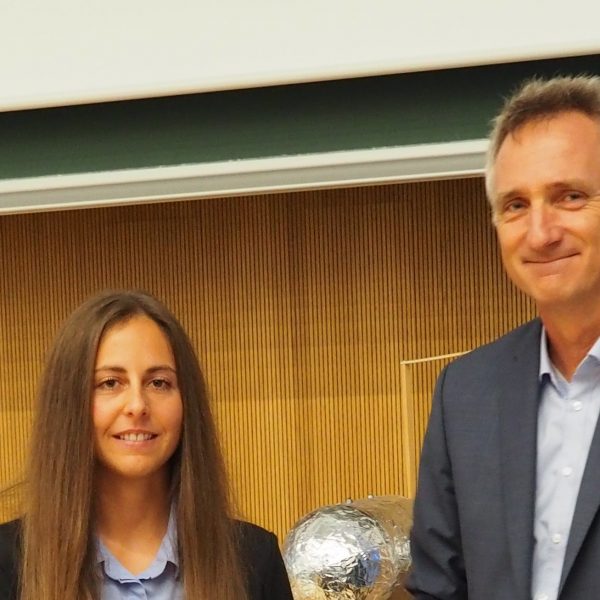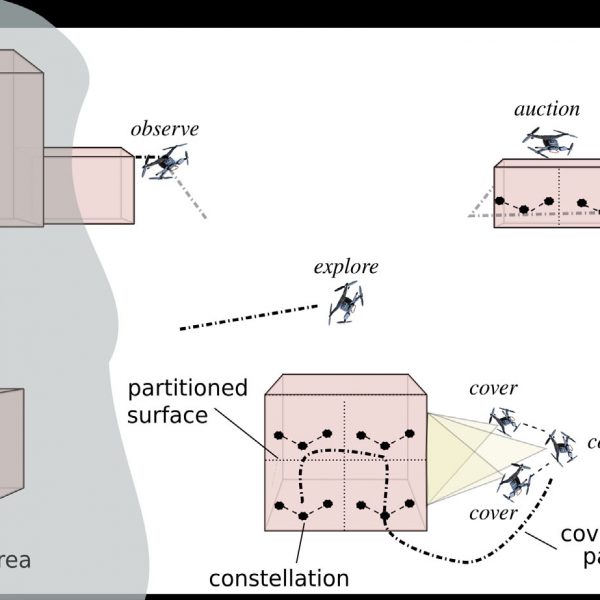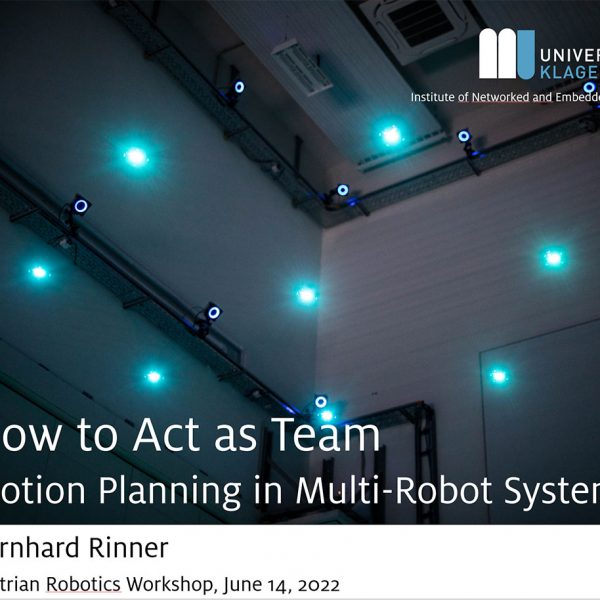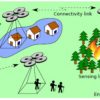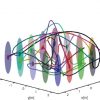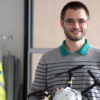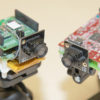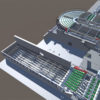Congratulations to our former study assistant Melanie Mayer!She received the “Best Performer Award” of the Faculty of Technical Sciences for her study achievements in the study year 2020/2021, which were the best among all enrolled students of our Information and Communications Engineering program. The study achievements are ranked based on […]
Author: Bernhard Rinner
Minimizing idleness in multi-robot patrolling
Patrolling is the task of continuously monitoring an environment over a long period of time. Many multi-robot applications, including disaster response, security tasks as well as exploration and mapping, can be represented as a patrolling problem. In our recent paper, we investigated multi-robot patrolling with limited connectivity among robots and […]
Multi-Robot Coordination talk
I gave a talk on “Multi-Robot Coordination” at the International Summer School on Artificial Intelligence in Udine on July 7, 2020. Download the presentation slides. Now that robots have evolved from bulky platforms to agile devices, a challenge is to combine multiple robots into an integrated autonomous system, offering functionality […]
Keynote at Austrian Robotics Workshop
I gave a keynote on “How to Act as Team – Motion Planning in Multi-Robot Systems” at the Austrian Robotics Workshop 2022 in Villach.
Path planning for confined environments
Planning the collision-free, simultaneous movement of multiple agents is a fundamental problem in multi-robot systems and becomes particularly challenging in highly confined environments. Hikmet Beyoglu addresses this problem in his master thesis by first searching for collision-free paths in a discretized environment and then optimizing the agents’ dynamically feasible trajectories […]
AIDA AI excellence lecture
Bernhard Rinner gave a lecture on “Self-awareness for autonomous systems” as part of the AI Excellence Lecture Series of the Artificial Intelligence Doctoral Academy. Abstract Self-awareness is a broad concept borrowed from cognitive science and psychology that describes the property of a system, which has knowledge of “itself,” based on […]
